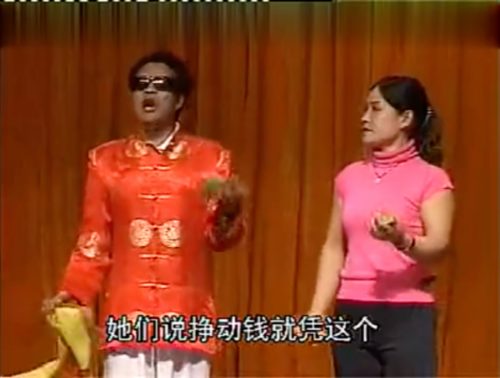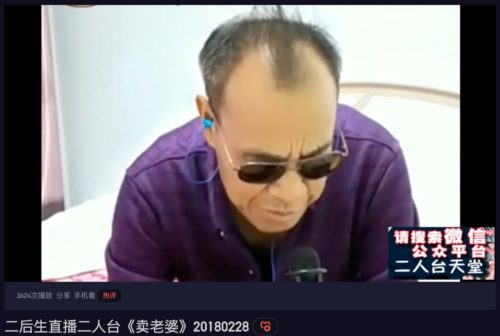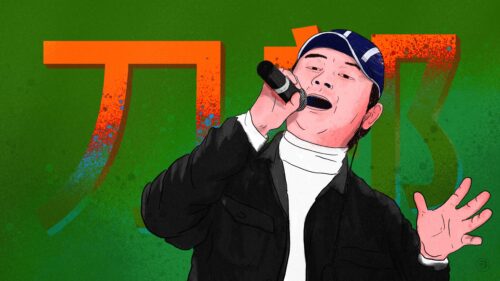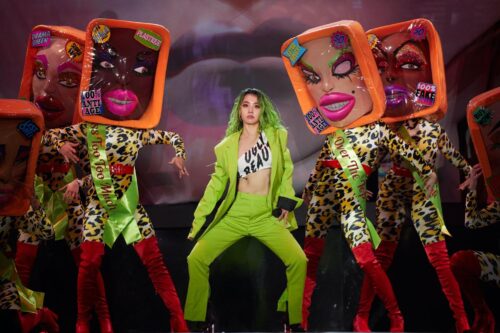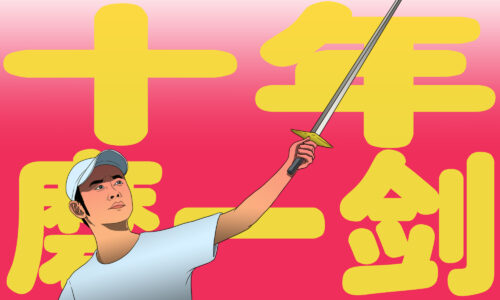Er Housheng, who had his eyes gouged out, dies at 58
No matter how wonderful socialist spiritual civilization was or is, the hunger for songs about hunger and heartache is universal. Enter Er Housheng, who connected with audiences by singing about suffering — most notably his own.
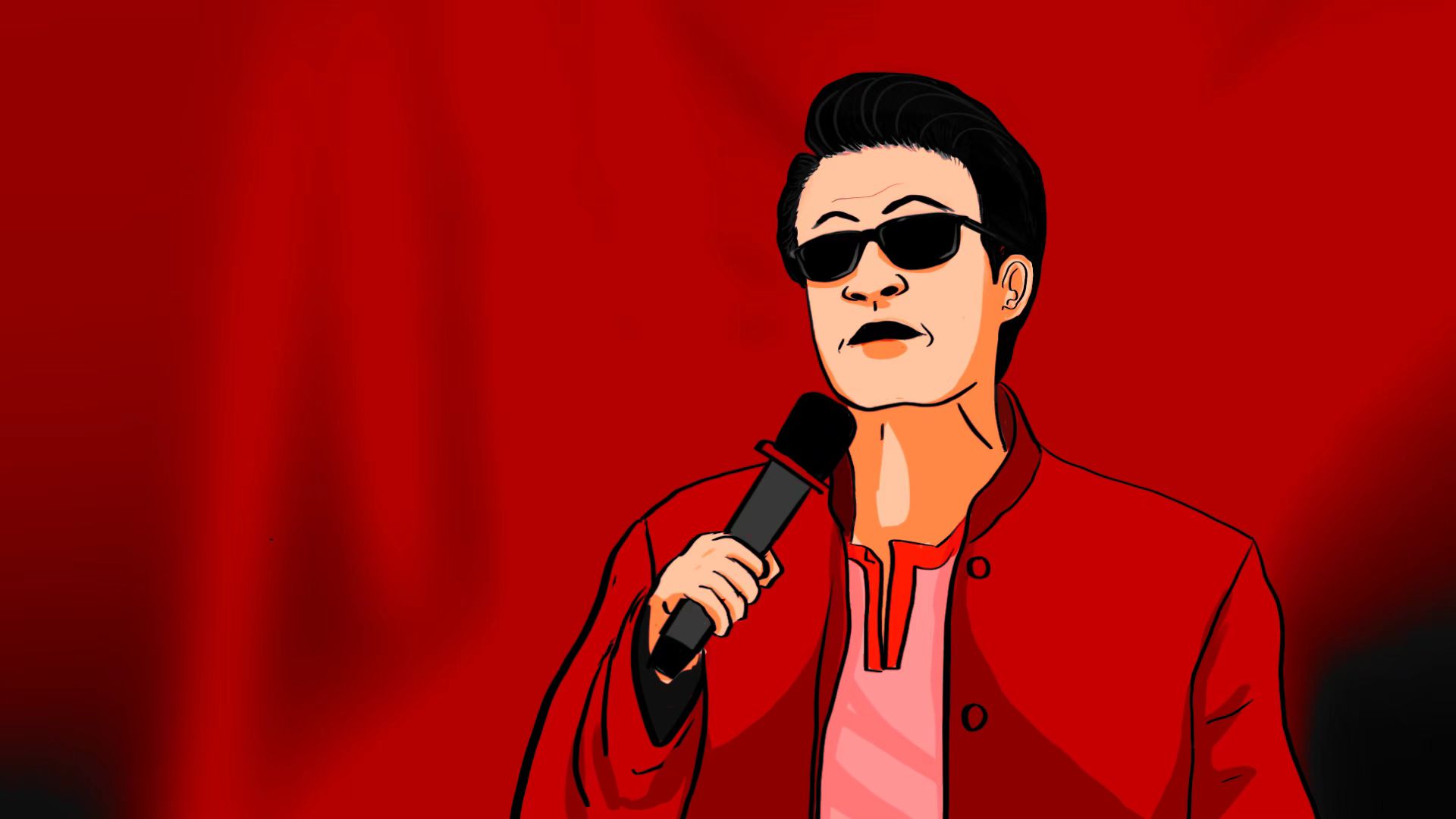
Zhào Jīnyù 赵金玉, better known as Èr Hòushēng 二后生, was a hard-living legend of Northern Chinese song and storytelling, infamous for his lengthy rap about having his eyes gouged out. He died of cerebral hemorrhage in Shangdu County, Inner Mongolia on October 29. He was 58 years old.
Perhaps it was because rumors of his death had circulated online many times before that someone saw fit to release footage of the singer being pronounced dead in the hospital, followed by video of his raucous funeral procession. Sadly, there is no doubt this time that Zhao has passed. Details of his life are less clear.
Apart from remarks Er Housheng made in Cut Out the Eyes, a documentary by Xú Tóng 徐童 about the singer in 2014, most biographical material is sourced directly from his songs. It is hard to separate legend from fact. This is what seems to be true: his mother was blind and her remarriage after the death of Er Housheng’s father was to a disabled man; he left home in his early teens, following his elder brother; and they made a living singing on the street and for funerals.
Er Housheng and his brother out on the road in the 1970s and 1980s sang songs that were the product of the great 18th- and 19th-century migration out from the Shaanxi highlands into Inner Mongolia. As that wave of Han migrants to the borderlands went beyond the gates of the western section of the Great Wall — zǒu xīkǒu 走西口 — they brought their traditions with them (and here, it should be noted, at least parenthetically, that recent scholarship has suggested the influence of Mongolian folk traditions).
Musicologists and anthropologists coming from outside swept the innumerable genres of Inner Mongolia, Shanxi, and Hebei folk song under the category of èr’réntái 二人台. The standardization and classification of these folk forms was done benevolently, with the idea that they could be woven into a new, authentic, proletarian national culture. It’s too late now to pluck a single strand out of the tapestry. Some of Er Housheng’s work could accurately be called er’rentai, but he was famous for the roughest narrative-heavy brand of song, usually performed solo. These are sometimes called “beggar songs” — tǎochīdiào 讨吃调 — hard luck stories accompanied with simple percussion.
In the late 1970s, when Er Housheng first hit the road, he was taking part in an unofficial revival of the type of folk music that had been — if not the subject of brutal denunciation, like clearly bourgeois art forms — not celebrated under Maoism. Traditional ritual observances had returned, and the breakdown in state administration of the socialist society was putting hungry young men and women out on the road. The music-and-dance troupes organized by various levels of government disbanded, or their members were picking up work on the side, playing the funerals and village fairs that flourished in the liberal atmosphere of reform and opening. Er Housheng started making money.
No matter how wonderful socialist spiritual civilization was or is, the hunger for songs about hunger and heartache is universal. Other passions are almost as universal: the usual er’rentai style of a couple on stage lends itself to obscene flirtation (think Trick Daddy and Trina going back and forth on “Nann Nigga“).
In a performance captured in Xu Tong’s documentary, Er Housheng and his partner Liú Lánlán 刘兰兰 go back and forth, setting up an extramarital affair. “I’ve been doing this kind of thing since I was 13 years old,” Liu Lanlan brags. Er Housheng warns that she shouldn’t fear his wife but the girth of his cock.
That was the circuit on which Er Housheng made his name through the 1980s.
And that was how he got his eyes cut out of his head.
According to his account of the events, Er Housheng met a woman whose husband sent her out on the road with him to earn money performing er’rentai. The pompadoured loverman lived up to all the er’rentai tropes and bedded her.
Xu Tong’s documentary, Cut Out the Eyes (挖眼睛 wā yǎnjīng) takes its title from Er Housheng’s lengthy routine about the incident and his most popular VCD release, which featured an unabridged performance with a gruesome reenactment played behind him.
The documentary begins with the story of the woman’s family luring him to a house, then details how her jealous husband and brothers-in-law tortured him. “They took out my left eye first,” he howls. “I could still see clearly, / He did it with his bare hands. / Two fingers drove inside, / Didn’t hesitate a second. / I could hear the sound of it / As he ripped away everything inside.”
The narrative escalates from there, with the perpetrators eventually taking out his right eye with a pair of shears. They toss some brine on him to stave off infection and stop blood loss, then make a run for it. Er Housheng gets tossed in the back of a tricycle and driven to get medical assistance. One eye is beyond repair and the other has to be removed to save him from infection. The song recounts that he went begging again with his brother, his head wrapped in gauze, trying to raise money to pay his medical fees.
The brutal narrative gave him legendary status.
The fact that he was singing about his individual suffering was why it connected with audiences, and that autobiographical element defied conventions. Even after the revival of er’rentai after the 1970s, most performers sang the songs carried out from Shaanxi, or contemporary riffs on them. This was an innovation equal to Jia Pingwa — another legendary cocksman — taking the forms of the Ming-Qing vernacular to write about scything through Xi’an in the afterglow of reform and opening in the novel Ruined City (废都 fèi dū).
When he passed, Er Housheng was still on the same Inner Mongolia circuit that made him famous. Xu Tong’s 2014 documentary shows him perpetually in motion, setting up under tents, stuffing cash in his breast pocket, grousing that his sister-in-law was spending all the money he gave her to look after his late mother. His life hadn’t changed much in 30 years.
But he was also remembered as a “famous internet celebrity” — zhīmíng wǎnghóng 知名网红. Like many folk artists, Er Housheng had taken advantage of internet streaming to foster a niche following.
Without online video platforms, which host virtually all material that Er Housheng released on VCD in the 1990s and 2000s (including his Cut Out the Eyes VCD and an updated New Cut Out the Eyes [新挖眼睛 xīn wā yǎnjīng]) and Xu Tong’s documentary, few outside of Inner Mongolia would know about him. Like other local performers, he also made use of streaming applications to talk directly to the public. The fact that he spoke and sang in a language incomprehensible to most people in the country kept him from legitimate media but not from streaming. The internet waters the grassroots. Appearing in recent years with his hair cropped close to his skull, Er Housheng would sing tunes or answer questions from fans who had never seen him under a tent in Inner Mongolia but knew him from content that appeared on Bilibili or Kuaishou.
As he approached the end, Er Housheng seemed to know what was coming, organizing monumental streams with er’rentai stars of yesteryear and pondering shaky relationships with men that were supposedly his sworn brothers.
In a better world, perhaps he would have been wealthy, or at least famous, at least given spots on state media, representing a folk culture evaporating in the wake of pop music — a force far more powerful than Maoist cultural orthodoxy. Although it’s hard to say if that would have given him any comfort.
